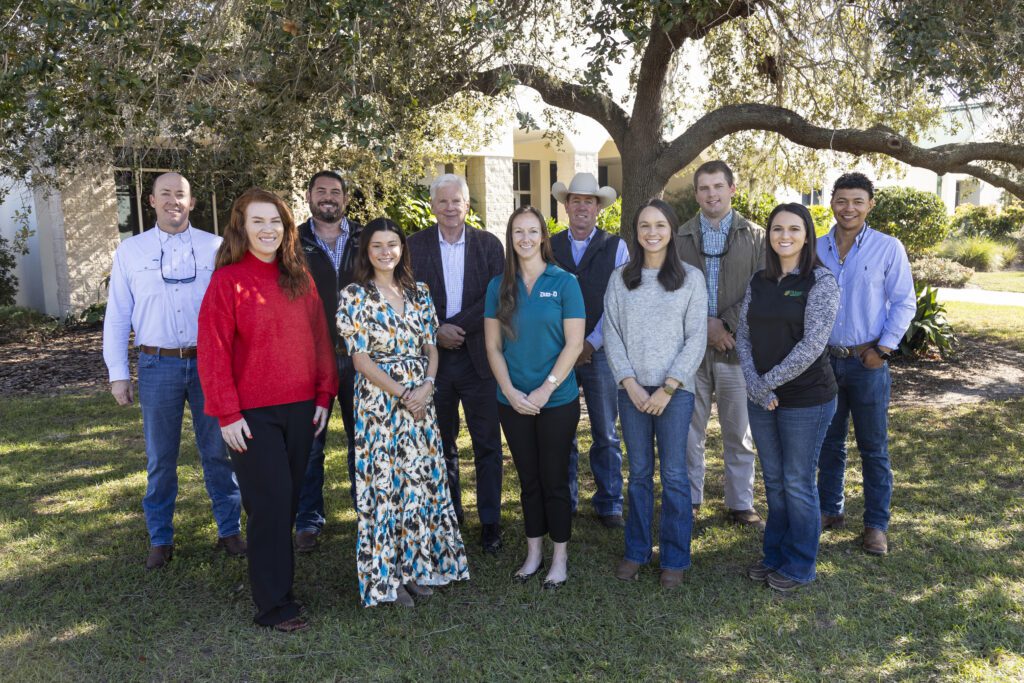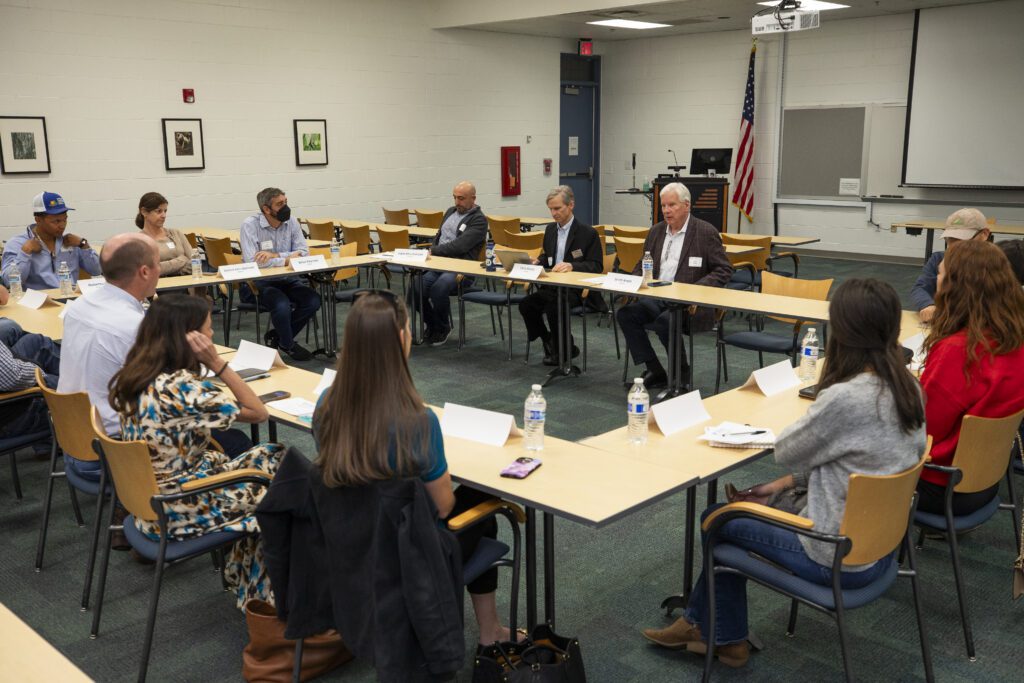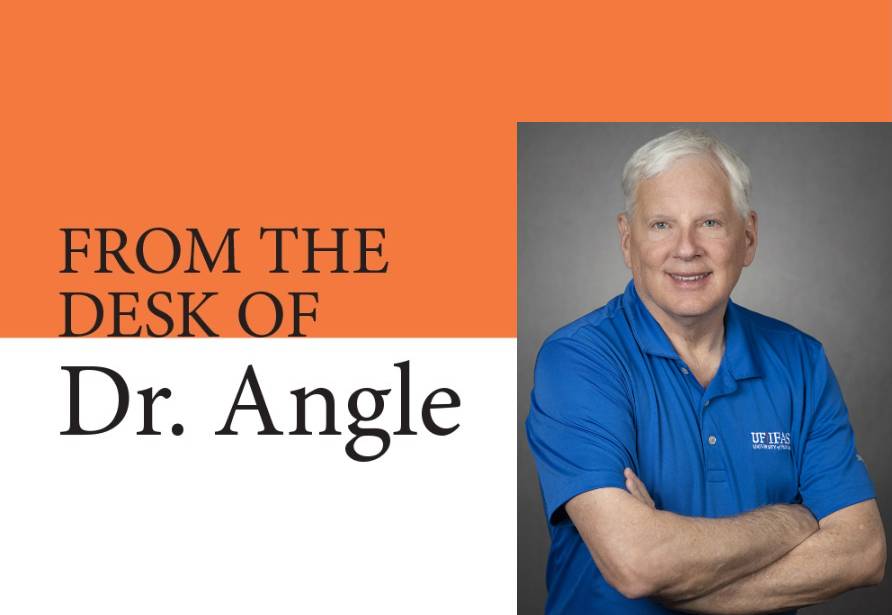By J. Scott Angle
@IFAS_VP
I work for you. But if I’m doing my job right, I’m working for your kids, too. The next generation of agriculturalists not only give me great hope about the future, they give me insights on what UF/IFAS can do to help create it.

It’s one they see filled with technology. To me, that means a lot of things, including drones. But a budding scientist at U.S. Sugar, Gracelyn Byrd, challenged me to think bigger than that when she asked me if UF/IFAS can devise a system to provide affordable satellite imagery to producers.
Now I’ll be bringing her question to my faculty.
That’s how this works. To find out what you need, we ask you.
At the meeting where I spoke with Byrd, I was after how to serve the farmer of the future – her and her peers. I recently hosted a group of them from cattle, citrus, sugar, fruits and vegetables, turf, and precision ag in what I call a young ag leaders roundtable at the UF/IFAS Mid-Florida Research and Education Center (MREC).
Jennifer Schaal of Dundee Citrus asked for technology-driven responses to the labor crunch. If we can’t find scores of laborers to run a packinghouse, can we find a handful of engineers who can help with mechanization?
And Mikayla Rogers of Highland Ag Solutions had another important concern about new technology and equipment. Because it hasn’t gone through the time and wear and tear from researchers, it’s difficult to be confident of its longevity. There’s risk in not knowing whether a tool might break before a producer sees a return on it.
Turf grower Carleton Johns of Tater Farms was interested in learning more about how we’re applying genetics to our turf breeding. Rick Hartman of North Shore Cattle Services in Okeechobee was interested in how to get past what consumers say they want and get better at predicting what they will actually choose. I put him and the group in front of a UF/IFAS MREC scientist who tries to do that by tracking eye movements to monitor where consumers direct their attention.
We discussed the need for breeding new varieties of crops in a gene editing lab. They got a good look at plants that could figure into Florida’s future to contribute to Florida-grown medicine, beer and decoratives.

Sometimes, though, the group told me, the challenge is not production but politics. Tripp Hunter, lobbyist for the Florida Fruit & Vegetable Association, highlighted how young agricultural leaders will need to step into the political arena to advocate and educate to ensure policy makers don’t lose sight of how critical Florida agriculture is. Bad policy can kill a crop just like a freeze can.
I’ll continue to listen to any farmer, any association leader, anyone in Florida ag who can ground me in what’s going on in your fields and groves and on your ranches on a day-to-day basis. But sometimes I need to hear from the future, and the group I convened has decades ahead of them in Florida agriculture (I hope!).
They think big and bold and help me do the same.
We all want to do our part to feed a hungry world. But as Byrd reminded me, sometimes we might have to look down from space to do it.
J. Scott Angle is the University of Florida’s Interim Provost. Since 2020 he has served as UF’s Senior Vice President for Agriculture and Natural Resources and leader of the UF Institute of Food and Agricultural Sciences (UF/IFAS).

